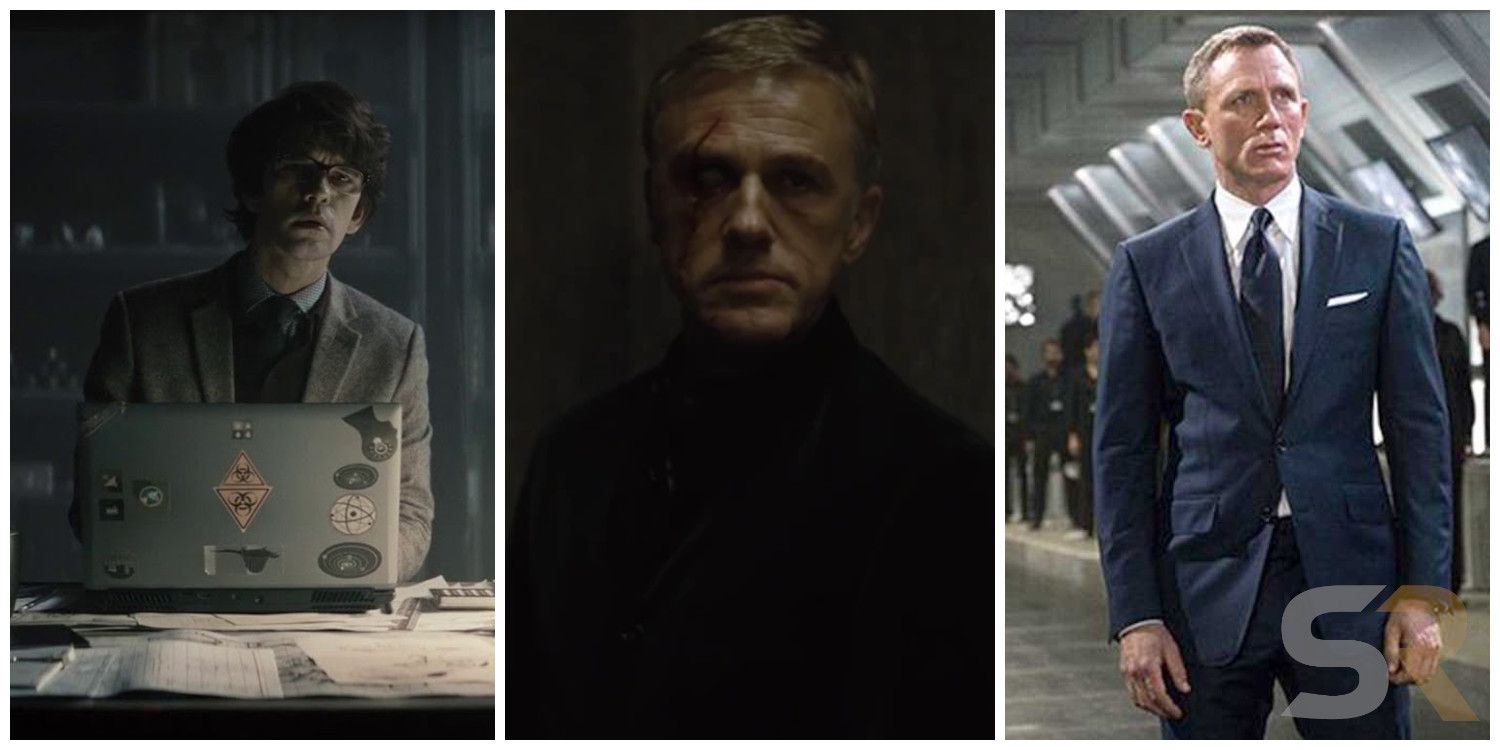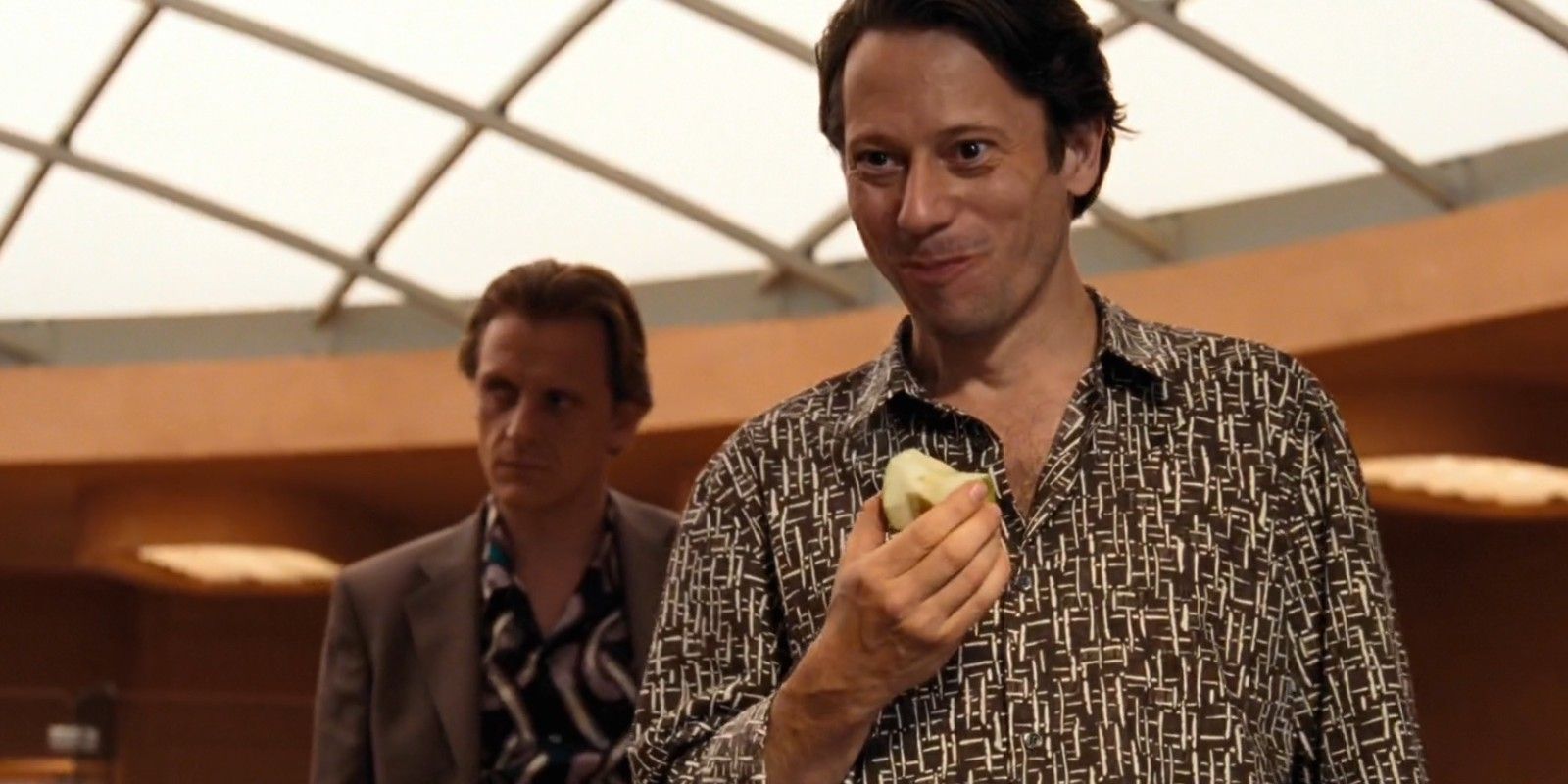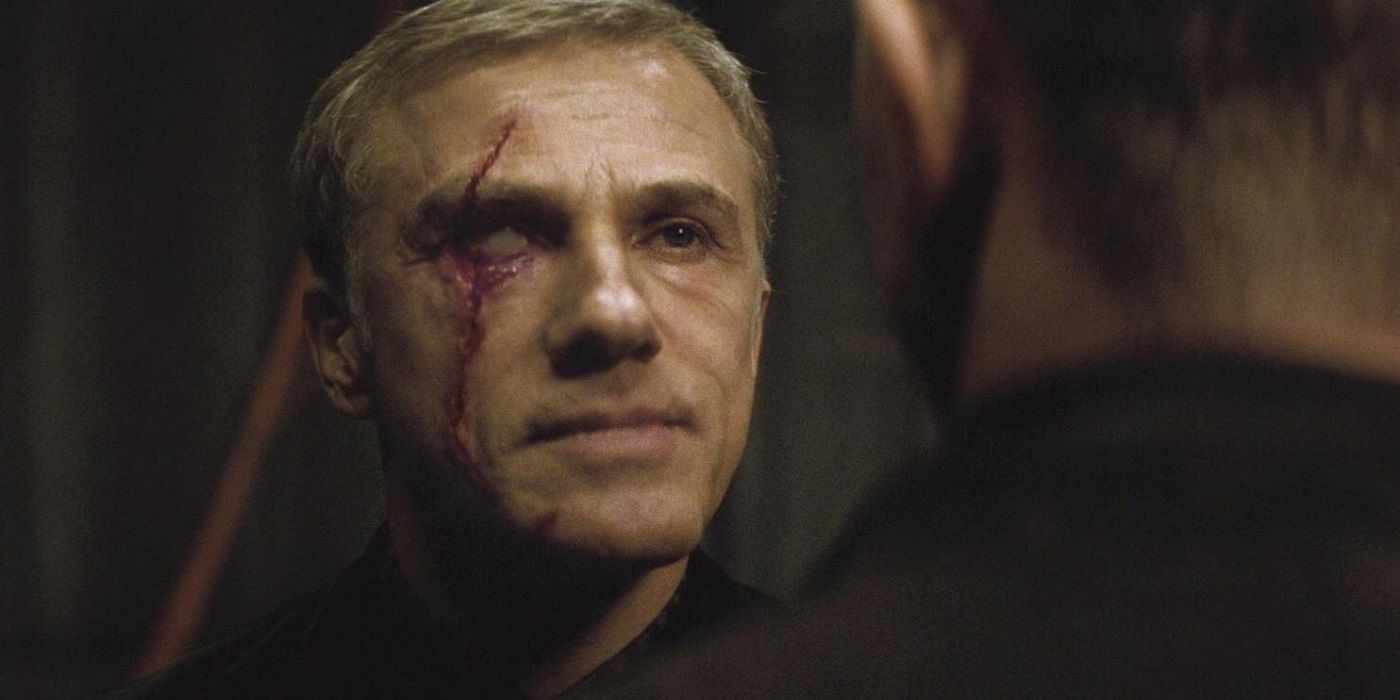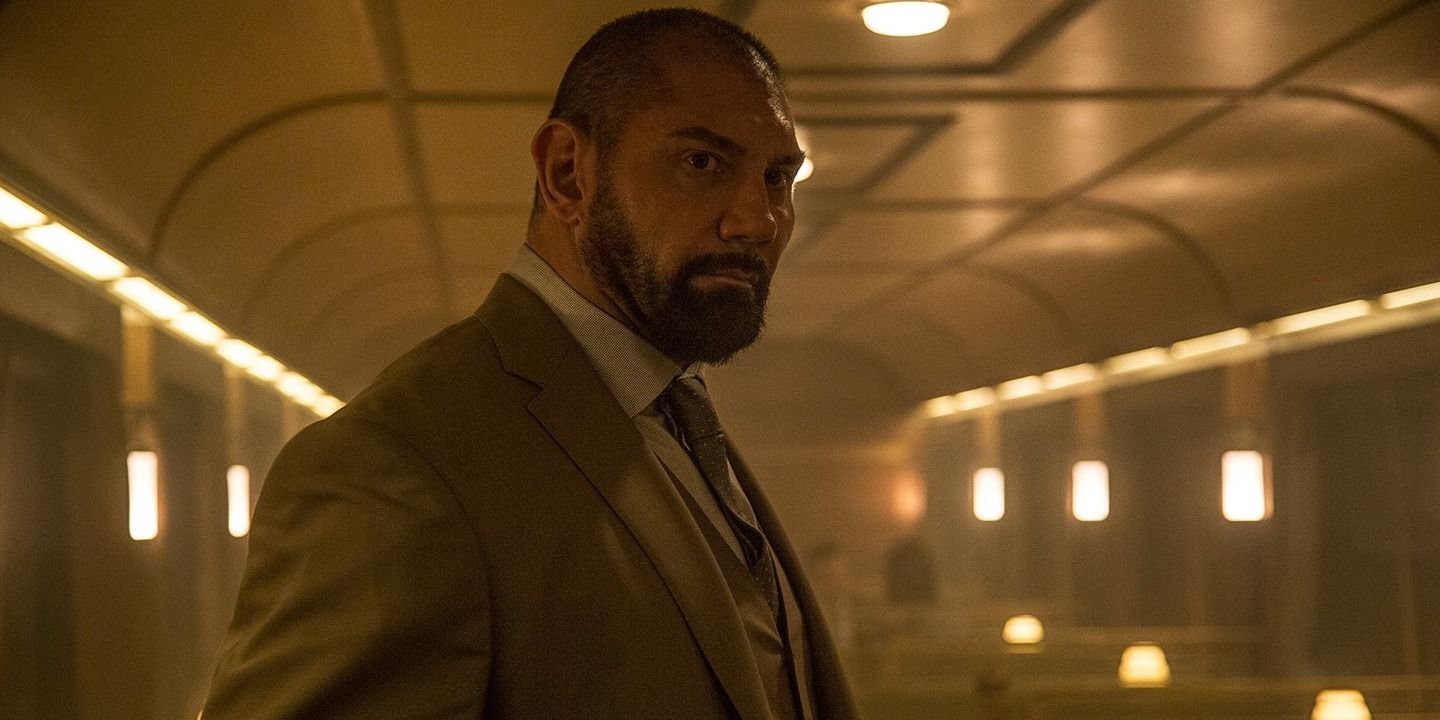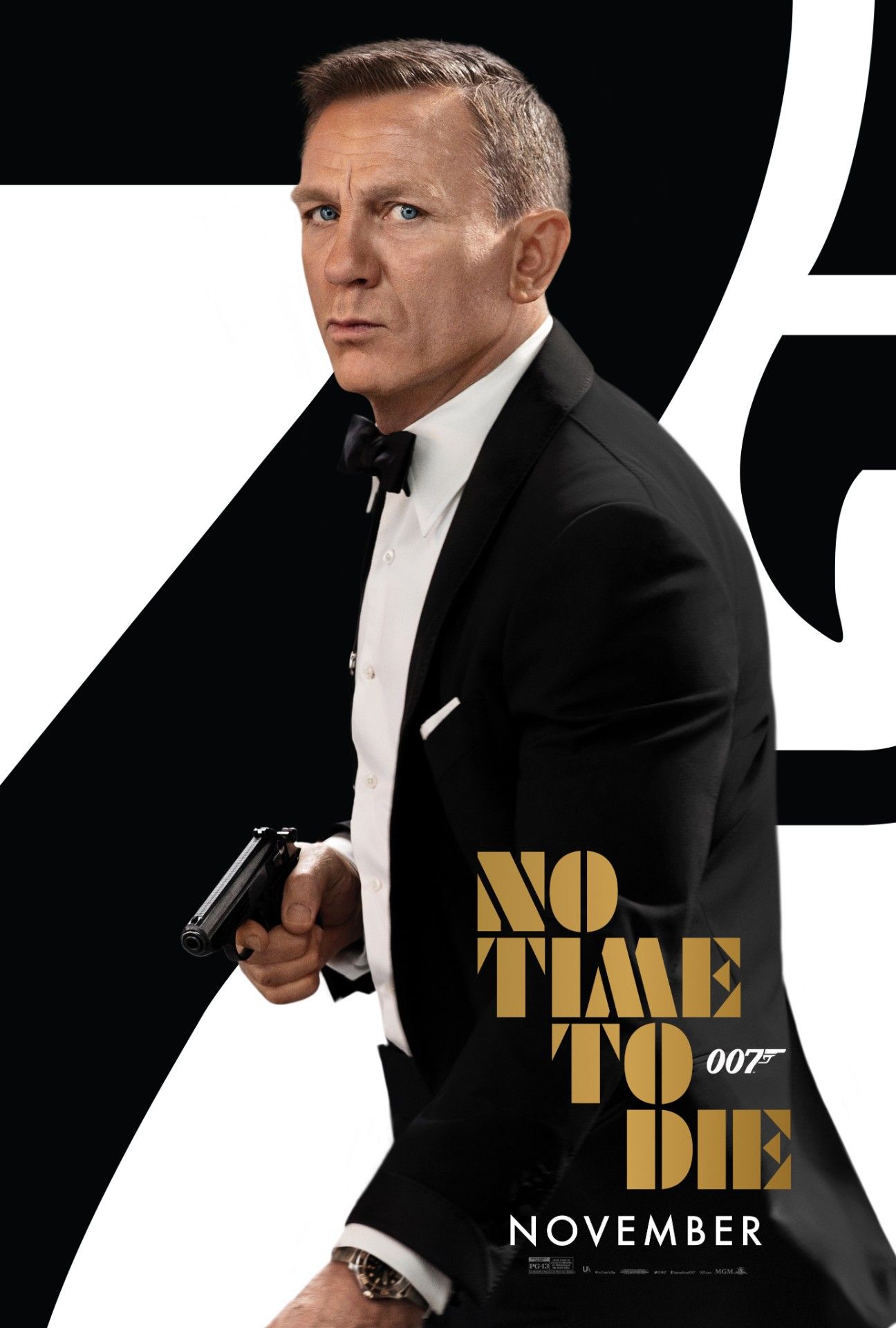From narrative mistakes to behind-the-scenes rights issues, there's a lot that went wrong with Daniel Craig's fourth James Bond movie, Spectre. Craig will soon step down from the role of 007, as his fifth and final Bond movie No Time To Die draws nearer. The movie will round off a five-film run for the actor, who has himself admitted to the unevenness of the modern Bond installments. And while it seems No Time To Die may well fix the mistakes of Spectre, the... spectre of that previous entry looms large over the upcoming sequel.
Coming after the most popular Bond movie ever in terms of box office draw, Skyfall, Spectre was always going to be under increased scrutiny. Skyfall had managed to get the Craig-led Bond movies back on track following the misstep that was Quantum of Solace and fans were hoping for yet another improvement following Skyfall's success. Unfortunately, the consensus is that Spectre failed to deliver, with even Craig himself saying he returned for No Time To Die because "if [he’d] left it at Spectre, something at the back of [his] head would have been going, ‘I wish I’d done one more'."
Considering how well Craig's tenure as Bond started, with the excellent Casino Royale, fans have often been dismayed at the route the Bond films have taken since. And while Skyfall somewhat redeemed Bond following Quantum, the lackluster Spectre – which is reliably ranked low among the James Bond movies – undoubtedly set things back for fans and critics alike, despite box office earnings of $879 million worldwide. Before it's revealed whether No Time To Die can make up for it, here's everything that went wrong with Spectre.
It Unnecessarily Tried To Retcon The Quantum Group
To be fair to Spectre, the movie inherited somewhat of a mess in terms of storyline. The 24th Bond movie was faced with the task of tying together the previous three Craig-led films while simultaneously dealing with behind-the-scenes rights issues. Casino Royale often tops the list of best Bond movies, and for good reason. But one thing missing from Craig's Bond debut is the legendary SPECTRE organization – a shadowy group of villains and a mainstay of the Bond series since its creation.
Royale hinted at a worldwide cabal of rogues without naming the group specifically. This was mainly due to the fact SPECTRE was at the heart of a copyright dispute, with production company Eon unable to secure the rights to use the name in Casino Royale or its follow-up. As a result, Royale's direct sequel Quantum of Solace introduced an organization named Quantum which was planned as an ongoing alternative SPECTRE.
But by 2013, Eon had managed to strike a deal which allowed the producers to finally use the SPECTRE name. Spectre director Sam Mendes and his team consequently decided to retcon SPECTRE's existence into the three prior movies by "revealing" that Quantum was simply a division of the overall organization. The film makes it so SPECTRE and its leader Ernst Stavro Blofeld (Christoph Waltz) were behind the nefarious plots in Casino Royale, Quantum of Solace, and Skyfall. This was summed up in a line from Waltz's Blofeld where he claims to be "the author of all [Bond's] pain." The writers even shoehorned in a sub-plot about Blofeld actually being Bond's adoptive brother.
Rather than acting as the mind-blowing twist the filmmakers intended, this awkward revision of Craig's Bond timeline came off as contrived and anti-climactic. What's more, it seemed to merely be a tool to distract from the film's lack of real character and plot development. It was almost as if Mendes and his team were relying on a "nothing was ever as it seemed" gimmick rather than actually producing a quality Bond installment. What's more, many fans liked things the way things seemed – especially in Casino Royale and the massively popular Skyfall – so retroactively changing the narrative came off as frustratingly misguided.
Blofeld Was A Let-Down
When Christoph Waltz was announced as part of the cast for Spectre, he was listed as playing someone called Franz Oberhauser. As it turns out, Franz was Bond's aforementioned adoptive brother who turns out to be legendary Bond villain and head of SPECTRE, Blofeld. But despite the filmmakers' attempts to keep Oberhauser's true identity under wraps, fans soon figured out that Waltz was indeed following in the footsteps of numerous actors who'd played classic Bond foe Blofeld. A disappointing start soon developed into a full-on let-down, as the Blofeld of Spectre turned out to be just as underdeveloped and awkward as the overall attempt to retroactively jam SPECTRE into the modern Bond continuity.
Waltz's typically idiosyncratic take on Blofeld also ultimately proved to be underwhelming. Aside from having to explain his position within Bond's backstory through tediously long exposition scenes, Blofeld actually doesn't appear in much of the film, resulting in an unfortunately forgettable turn from Waltz. Perhaps if Spectre hadn't lumbered itself with having to retcon Blofeld into the previous three entries, there would have been more room for the central villain to shine. As it stands, the film's handling of the quintessential Bond villain remains one of its most disappointing features. With Waltz returning as Blofeld in No Time To Die, there's still hope his version of the villain can be somewhat redeemed.
Too Long, Too Little Action
With its two-and-a-half-hour runtime, Spectre is a slog of a spy-flick by any standards. All of which would be fine if the movie presented a genuinely intriguing plot. Unfortunately, its spy-gone-rogue narrative was stale even back in 2015, and gave the film more of a Bond ripoff feel than an actual 007 story. Writers Robert Wade and Neal Purvis managed to string together a paint-by-numbers action tale, that features Bond travelling between one dull plot point after another. It's not that the individual plot points were confusing in and of themselves. But taken as a whole, the various narrative beats become the worst kind of convoluted web. Even if audiences paid close attention, they weren't rewarded with anything particularly revelatory or interesting.
That's not to say Spectre is completely devoid of action. There's a genuinely tense face-off between Bond and Dave Bautista's Mr. Hinx onboard a speeding train. And the opening Day of the Dead sequence sets things off with an incongruously captivating bang. Even the torture scene at Blofeld's headquarters, while not one of Craig's best Bond moments, is an effectively nerve-wracking affair. But there are too few of these sequences to rescue Spectre from its dull, generic plot. What's more, Bond chooses not to dispatch Blofeld, inexplicably leaving the mastermind behind 007's tortured recent years to strike again.
It Was About Bond's Past, Not His Future
Skyfall saw great success with its attempt to delve into Bond's past, returning him to his childhood home for the film's denouement. But while Spectre attempts a similar exploration of Bond's past, it fails to offer any kind of insight beyond 'SPECTRE did it'. Writer John Logan helped to refine Skyfall's script - which originally contained a much different story – and was brought back onboard to bring some prestige to the Bond of Spectre, which ultimately made for a confusing clash of styles between Purvis and Wade's somewhat kitschy 007 and Logan's more grounded approach. This ultimately meant the moments of the film that were intended to bring some emotional weight by exploring Bond's past fell somewhat flat.
By the end of the film, Bond and his new love interest, Lea Seydoux's Madeline Swann simply drive off into the sunset, with no indication of what awaits Bond in the future. At the time, this could very well have been Craig's last turn as Bond, so such an ending was presumably supposed to tie up his four-film run neatly. But it felt more as though the preceeding two-and-a-half hours had been one long attempt to retcon Bond's past leading up to a storybook ending 007 hadn't earned. This was surely what motivated Craig to don the tux once more for No Time To Die.
The film also maintains some of Skyfall's worst features – namely the attempt to resurrect Bond tropes of the past. Skyfall reintroduced Q-Branch, and after killing off the inimitable Judi Dench's M, reinstated a male M (Ralph Fiennes) alongside the return of the Miss Moneypenny character. Then there was the Aston Martin DB5 complete with ejector seat which inexplicably appears in Skyfall just as Bond and M are enduring one of their darkest hours – bringing some entirely unneeded levity to the proceedings. It was all a fairly cynical attempt to leverage fan nostalgia, and it was all back in Spectre. Q's gadgets – including an exploding watch – and the DB5 both make an appearance, serving more as reminders of the producers' post-Quantum of Solace panicked attempts to appeal to fans of Bond tradition than as necessary plot elements. Casino Royale proved a forward-looking Bond film could work, but both Skyfall and Spectre seem too preoccupied with Bond's past – both story-wise and in terms of 007 trademarks of old.

